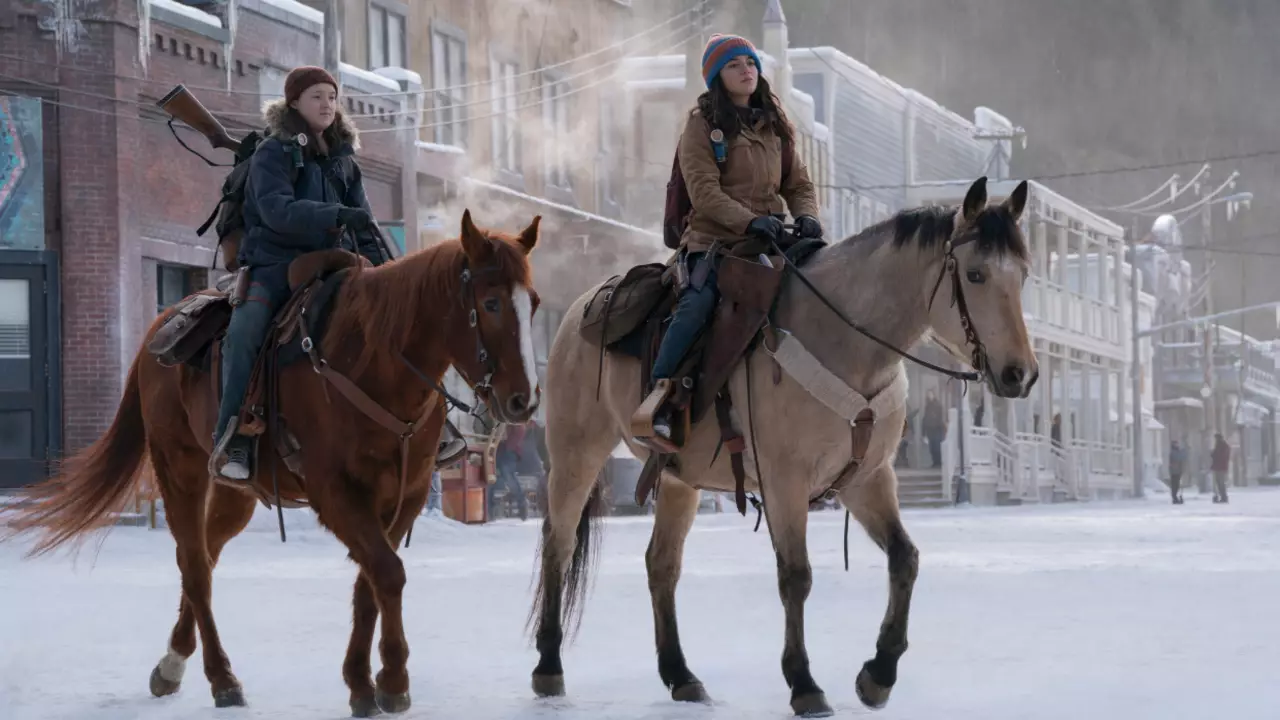HBO’s adaptation of the critically acclaimed video game series “The Last of Us” is poised to return with its second season this April, igniting excitement and speculation among fans. Showrunner Craig Mazin has confirmed that this upcoming season will diverge from the game’s narrative timeline, acknowledging the necessity for innovation in storytelling when transitioning from an interactive medium to television. This departure raises questions about how much of the original game’s structure fans can expect to find in the new season, as Mazin stated that the changes were thoughtfully made to create the most compelling narrative on-screen.
The storytelling in “The Last of Us: Part II,” the video game sequel upon which the series is based, employs a non-linear narrative, weaving between characters Ellie and Abby. This format presents a unique challenge for the show’s writers, as they strive to maintain the emotional depth while experimenting with temporal shifts within the storyline. The showrunners’ decision to “mess around” with the timeline is an intriguing commitment to flexibility, suggesting that audiences may witness a narrative that is both fresh and resonant. Such decisions could serve to enhance the narrative’s emotional stakes, though it may also lead to divided opinions among dedicated fans of the franchise.
In addition to the shifting narrative structure, Season 2 is set to introduce new elements to the character roster. Notably, the character Abby, played by Kaitlyn Dever, will not physically transform to mirror her video game counterpart, which raises interesting questions about representation and character interpretation. This approach indicates a nuanced understanding of character development, focusing on the emotional journey rather than physical conformity to the source material.
Moreover, Mazin and his team have indicated plans to introduce characters who were only mentioned in the games as well as an entirely new character created specifically for the series. This creative decision aligns with the broader trend in contemporary adaptations, where expanding the universe allows for deeper storytelling and exploration of new dynamics. The integration of a new character could serve to enrich the narrative, providing fresh perspectives that enhance the existing storyline.
As “The Last of Us” prepares for its debut, it is essential to acknowledge the complex relationship between the original game’s fanbase and the expectations for the television adaptation. Craig Mazin himself anticipates potential backlash regarding creative deviations, openly admitting that he is not crafting the season to please social media audiences but rather to serve the story’s integrity. This frankness is commendable; however, it illustrates the tightrope that adaptions walk, balancing artistic integrity with loyal fan expectations.
Understanding that adaptations often invite scrutiny, the team behind “The Last of Us” demonstrates a commitment to thoughtful storytelling. The diversity in character placement and narrative structure will likely stimulate engaging discussions within the gaming community and beyond, prompting fans to evaluate how well the television interpretation honors the original while pioneering its unique path.
With the return of “The Last of Us” on HBO, it is invigorating to consider the broader implications for video game adaptations as a whole. Following the success of the first season, April is promising to be a pivotal month for adaptations, with several highly anticipated projects, including a “Minecraft” movie and an “Until Dawn” film. The rise of video game narratives in mainstream media suggests a significant shift in how stories are being told and received.
Additionally, Neil Druckmann, co-showrunner and creator of the game series, has hinted at “The Last of Us Part 3” being developed alongside other new games. This dual approach of expanding the narrative both on-screen and in interactive media opens up exhilarating possibilities for future storytelling avenues and cross-platform experiences.
“The Last of Us” Season 2 stands at the intersection of opportunity and challenge. As it approaches release, fans are left with a mix of excitement, curiosity, and caution, eager to see how the story will unfold while understanding that the journey may lead to unexpected places. The evolution of this beloved narrative may ultimately redefine its relevance and resonance in both the television landscape and the broader realm of storytelling.

